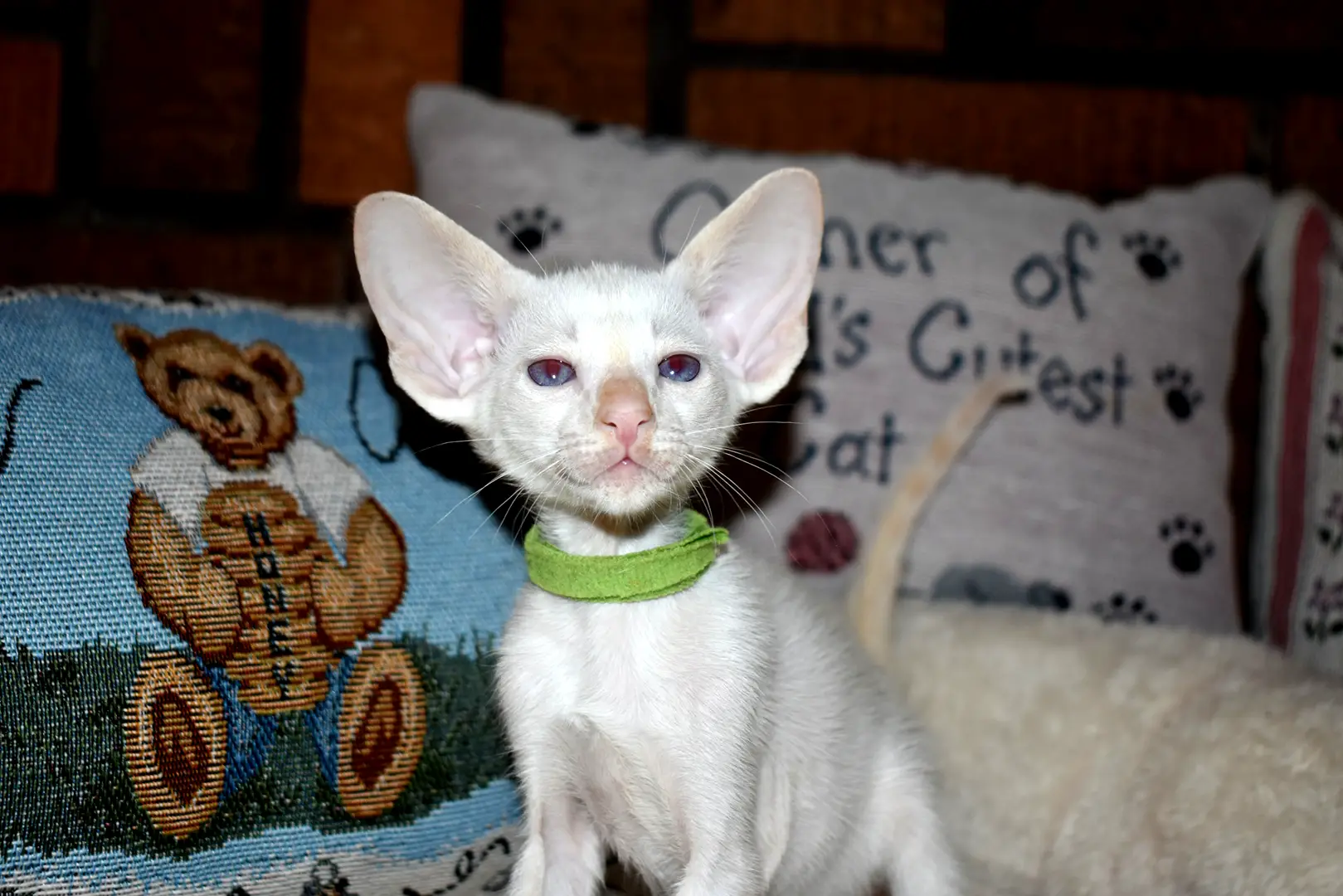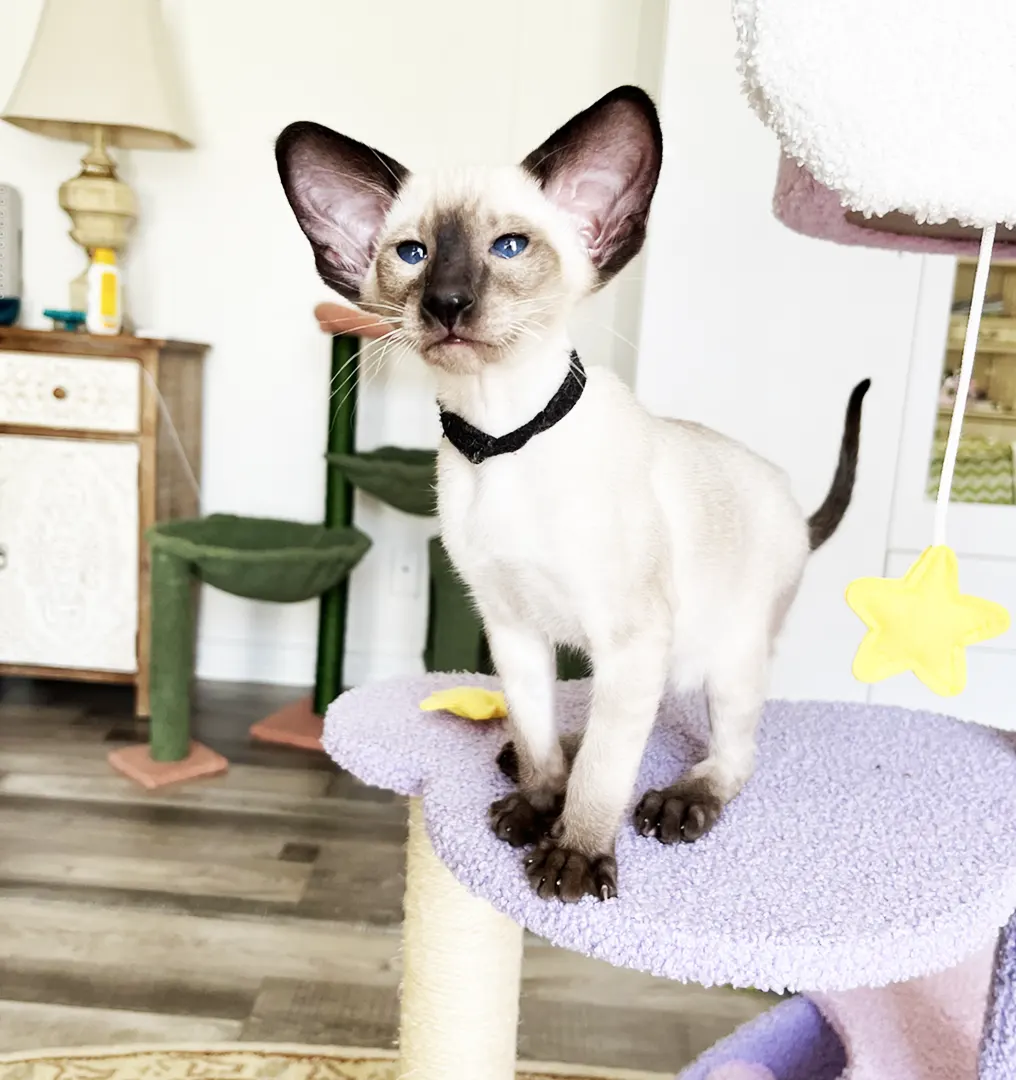There are several options available for shipping kittens to their new homes.
Very often people come to a cattery with a request for a hypoallergenic Oriental or Siamese kitten. All of these people are inspired by articles on the Internet that there are cat breeds that do not cause allergies and that Oriental and Siamese cats top the list of hypoallergenic cats.

Unfortunately, some unscrupulous Oriental and Siamese breeders support this myth without caring about the fate of kittens going to people with cat allergies.
You want to become an Oriental shorthair, Siamese, or any other breed cat owner someday and have this doubt about allergies.
You need to understand the term “hypoallergenic” first.
“Hypo” means less or low. This means that the chances of allergies are on the lower side and not non-existent.
Allergens, which are the main cause of allergies, are kinds of proteins present in feline body fluids like saliva and urine. They are also present in the sebaceous glands and anal glands found on the skin and in cat litter. Protein Fel d1, an abbreviation for Felis domesticus 1, where Felis domesticus is the zoological name for a cat, is the protein responsible for allergic reactions.
So even hypoallergenic felines have some amount of allergens ( Fel d 1).
Many believe that the allergen is dependent on the length of a cat’s fur. That is not true, though more hair definitely accounts for more allergy-causing agents that can hide in fur. A totally hairless cat still may not be devoid of allergens, as cats have the habit of cleaning and grooming themselves. This process leaves the dried saliva, the dander (dried skin peel-offs), and allergens still on their body which may be transferred to the owner while cuddling or playing with the pet, resulting in sneezing, watery, red, and itchy eyes, and runny nose.
According to the geneticist Leslie Lyons of the University of Missouri’s Feline Genetics and Comparative Medicine Laboratory, a person is not allergic to feline hair but rather the allergen or proteins present in feline saliva which are aerosolized in the room and stick to the hair.
The study says that hypoallergenic cats secrete and spread less amount of Fel d 1 as compared to normal cats but still can invoke allergies in allergic individuals. So for the most part, it won’t make that much of a difference if at all.
The protein molecule Fel d1 is an important asthma inducer found on the skin, sebaceous and salivary glands of cats, and sticks to skin and fur during licking by cats.
How to have a cat with allergies?
Scientists are working to block allergy-causing feline protein which is the main cause of allergic reactions through a vaccine. However, this has not been accomplished yet, as researchers have not determined how eliminating the targeted protein might affect cats.
Visiting a cattery for a brief time is not a significant test for determining how a particular breed of cat might affect a prospective owner. The exposure is not lengthy nor intimate enough to be meaningful, since an allergy may not manifest itself immediately. Allergens are often cumulative. Some small, in-home catteries cannot permit visits for such a purpose because they are private homes, and the cats live in the house with the breeders. Visitors might introduce infections or diseases into the cattery. A better solution might be to spend time with friends who have Oriental Shorthair or Siamese cats or to consult with one’s doctor about such things.
If, after all this information that hypoallergenic cats do not exist and have weighed all the risks, and if you still intend to adopt an Oriental or Siamese kitten, you should ask yourself, “ What will I do with a kitten if an allergy appears and the situation becomes unbearable? ” We are concerned with the kitten itself. Would you expect to return the kitten to the cattery? Please realize that this is stressful to the kitten and requires a significant amount of time for recovery. So please think carefully about wanting to adopt, especially if any member of the family has a pet allergy or immunity issues.
This article was originally published on pethelpful.com on May 28, 2021






